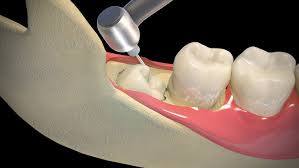Understanding CBN and CBD: Sleep Aid Powerhouses Explained

Is sleeping the problem? You are not alone.
80% of Americans report having difficulty sleeping at least weekly. It’s a troubling number that highlights just how common sleep problems have become.
For too long, prescription sleep medications have left users groggy and overly sedated. Yet the side effects and risk of dependency just aren’t worth it. Fortunately, natural alternatives are finally getting the research attention they deserve.
CBN and CBD are two cannabinoids that have emerged as some of the most effective sleep aids on the market today.
Why? Keep reading to see how these compounds work and what the science says about their sleep benefits.
Before we go any further… let’s see who’s who:
- CBN: cannabinol
- CBD: cannabidiol
What You Will Learn
- CBN vs CBD: What’s The Difference?
- CBN: The New Sleepy Cannabinoid?
- CBD for Sleep
- Delta 9 THC as a Sleep Aid
- How To Use Sleep Aids Safely
- Final Thoughts
CBN vs CBD for Sleep: How Do They Stack Up?
CBD and CBN are two cannabinoids with impressive effects for sleep. Here’s how each one works and which should be on your sleep aid shortlist.
CBN: The New Sleepy Cannabinoid?
Have you ever wondered what cannabis gets “old” looking? It’s CBN.
CBN (cannabinol) has been the sleep cannabinoid darling for a while now. It’s got a reputation for providing sleep benefits without next-day grogginess.
A 2024 study of 321 participants found people with “poor” or “very poor” sleep quality experienced significantly less nighttime awakenings and overall sleep disturbance after taking 20mg of CBN.
But how does CBN work as a sleep aid? And is it worth stocking in your sleep aid arsenal?
A young or “fresh” cannabis plant won’t contain much CBN, if any. This cannabinoid is formed when THC oxidizes over time, which is why aged cannabis products have higher CBN concentrations.
CBN is non-psychoactive. But its ability to target sleep disturbances and nighttime awakenings sets it apart from most other cannabinoids.
The 2024 clinical trial found participants experienced significant sleep improvements after one week of nightly CBN use.
They consumed their CBN oil capsules 90 minutes before bedtime, and it showed. Best of all, there were no problems with next-day sedation.
CBN research is still in its infancy compared to some other cannabinoids. But the existing studies have uncovered some promising benefits for sleep.
CBD for Sleep
CBD may be more well-known than CBN. But that doesn’t mean you should sleep on it.
It turns out a lot of users know what they’re doing with their CBD for sleep. 42% of Americans who consume CBD use it specifically for better sleep and insomnia.
And for good reason:
CBD is a great cannabinoid to support sleep quality. It’s well-researched, has an established safety profile, and is completely non-psychoactive.
CBD and Sleep: What the Science Says
Whereas CBN appears to directly promote sleepiness, CBD reduces anxiety and stress which are two of the most common reasons people don’t sleep well.
CBD can improve sleep quality by reducing anxiety, stress, and inflammation – all of which can get in the way of restful sleep.
One large clinical study of 72 adults with sleep and anxiety issues found CBD significantly reduced:
- anxiety over the first month, by 79.2% of participants
- sleep scores in 66.7% of the study group initially
CBD for Anxiety and Sleep
The thing to remember about CBD is it’s not always about the direct effects. CBD appears to work a bit differently than some other cannabinoids.
The sleep improvements from CBD tended to fluctuate over time in the clinical trial. It suggests the sleep benefits from CBD may work best as an occasional sleep aid or for people with occasional sleep problems.
CBD was far less effective for chronic insomnia.
Delta 9 THC as a Sleep Aid
CBN and CBD are great. But it’s not like Delta 9 THC was sleeping on the sidelines or anything.
Delta 9 THC has a reputation as one of the most effective cannabinoids for sleep support. It’s been used to promote sleep since before records were being kept, and modern research is now beginning to catch up.
What does the research show? Delta 9 THC may:
- Reduce sleep latency (time to fall asleep)
- Increase the amount of time users stay asleep
- Relax the body and mind
- Improve nighttime restfulness
- Potentially balance circadian rhythms
Delta 9 for Sleep: What the Science Says
User surveys also highlight how Delta 9 THC might be affecting sleep.
One survey of over 1,200 Delta 9 users by the University of California, Davis discovered more than half of users found they slept deeper and more restfully while under the influence of Delta 9 THC.
CBD vs Delta 9 THC for Sleep
The delta 9 THC connection to sleep isn’t perfect though.
The compound is psychoactive, meaning it will get you high. Some users love that for nighttime use. Others can’t stand the psychoactive side effects.
Recent research has also suggested that Delta 9 THC may reduce heart rate variability during sleep, which could be a sign of increased cardiovascular stress.
How to Use Sleep Aids Safely
Ready to dip your toe into the cannabinoid world to see if they work for your sleep?
Here are some best practices for using sleep aids safely:
- Start with a low dose and increase gradually to find your sweet spot
- Take the sleep aid 30-90 minutes before bed for best results
- Be mindful of your tolerance. If you’re new to cannabinoids, start low
- Buy your products from reputable sources that include third-party lab testing
The Sleep Revolution Is Here
It’s a new day for sleep aids.
Marijuana and CBD combined are now 20% of the adult population’s first choice as a sleep aid, signaling a major turning away from pharmaceuticals.
Science is finally getting around to catching up on what cannabis users have been reporting for years.
Natural cannabinoids that people have access to for purchase in the United States are showing real promise for sleep support without the dangerous side effects and morning grogginess that have plagued the pharmaceutical industry for so long.
That doesn’t mean sleep disorders should be ignored. Chronic sleep problems are a serious health condition that require professional attention.
CBD and CBN could provide valuable additional support. But they shouldn’t be a complete replacement for a doctor’s guidance when it comes to improving your sleep.
Wrapping It Up: Which One Is Right for You?
One of the most common questions we get is which cannabinoid to choose.
Both CBN and CBD offer benefits for sleep. But they approach the problem from different angles. That’s by design.
CBN directly targets sleep disturbances and nighttime awakenings, making it a great choice for people who have a hard time sleeping through the night.
CBD is more of an indirect sleep aid that targets the anxiety and stress that keep people up in the first place. It also pairs well with CBN for even deeper relaxation.
Ideally, your sleep routine will incorporate a variety of cannabinoids. After all, not every night is created equally.
Your sleep can change based on your stress levels, hormone balance, and even your diet. That’s why it’s worth keeping CBD on hand for more anxiety-inducing periods.
CBN for maintenance sleep support, with delta 9 THC thrown in there when you just really need the sleep to happen.
Natural cannabinoids finally put all the tools you need for better sleep right at your fingertips.
Sweet dreams.



